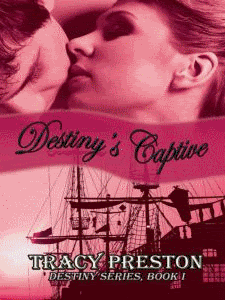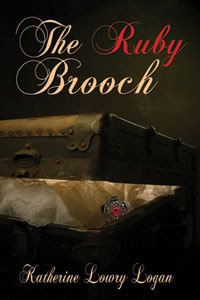 As for me, my day job was phased completely out last week. But, I'm taking it in stride. I choose the silver lining! Now that I'm off work, I can focus some much needed attention on my writing (which is what truly makes me happy anyway). So no worries!
As for me, my day job was phased completely out last week. But, I'm taking it in stride. I choose the silver lining! Now that I'm off work, I can focus some much needed attention on my writing (which is what truly makes me happy anyway). So no worries!With that said, on to Pink Lady business. Last Monday's Inspiration, Ink. entry was dedicated to the final hero archetype, The Chief. We had so much fun doing them, and had such a great response, we do intend to go on with the archetypes, doing blogs on both the heroine and the villain archetypes...fun, fun! So you can expect those in the very near future.
This week, however, we're going to post another wonderful article from Teresa Reasor's bountiful archive of goodies. What a fantastic talent she is -- and a wonderful teacher. So kudos to her for taking the time out to write these gems up for us.
Another thing I wanted to let everyone know...the Pink Ladies are planning another contest. We were thrilled with the success of the last one, and have planned another for Mother's Day. I'm going to officially announce all the details on Wednesday, so there's a little something to look forward to.
Before I turn the forum over to Teresa's article, I wanted to remind everyone of the upcoming book signing at Barnes & Noble in Lexington, KY on Friday, March 27 (6:00-8:00pm). Drop by if you can, we'd love to meet you! There is also a writing workshop on Saturday, March 28. It's hosted by our home chapter, KYRWA, and is $20 for members/$30 for nonmembers. It lasts all day, and we have some really great speakers/presentations lined up.
CLICK HERE FOR COMPLETE DETAILS
And now, on to the article......
TTFN,
Tracy Preston
-----------------------------------------------------------
Tearing Down the Big B
By Teresa Reasor
By Teresa Reasor
Writers Block is a condition that no writer ever wants to think about or experience. I refer to this condition as constipation of the mind. Norman Mailer said it better, “Writer’s Block is a failure of the ego—it’s a matter of not being in charge of your own mind.”
There are several things that cause this condition, but don’t despair, there are things you can do to break though the blocks they cause as well.
Fear of Failure is one of the things that cause writer’s block. You may not even be aware of this fear. In order to conquer it, you must face it. Write down all the things about the writing process that frightens you. (100,000 words to face. How will I begin? How will I end it? What if it sucks? )
Now write down all the things that anger you about the process. (All this time I’ll spend on this story and some editor will reject it.) Get all that negative energy out of your system and face it down.
Now ask yourself, what do you gain by not writing and write it down? (More free time to watch television, eat, and sleep.) Ask yourself, what do you gain by writing? (Fulfillment, pleasure, creative fluency, sanity.)
Just putting all this down on paper will free you from the emotional baggage that prevents you from writing and point out to you all the benefits that you reap from allowing yourself to pursue our dream. Post those benefits somewhere you can read them often.
Find a book that you think is badly written. (There are some out there, trust me.) Keep it next to your computer. Whenever those self-doubts rear their ugly heard, open up that book and read it. You know you can do better.
Fear of Success is sometimes known as Perfectionism run amuck. You’re stuck on those first few chapters and never get any further. You keep going back over the same pages polishing or making minor changes. You spend an excessive amount of time doing research or worrying about minor details.
This is a behavior that is difficult to break, but it can be conquered. Read the pages you’ve written and allow yourself a tweak or two then get on with it. To keep from toying too much, Alicia Rasley has an exercise called the 10 minute Block Buster you can use.
Give yourself time to think about what you want to accomplish with the scene. Call a friend who writes also. Each of you sit at the keyboard and discuss what you are going to write about. Set a kitchen timer for 10 minutes. Say go and hang up. Don’t allow yourself to stop for misspelled words or grammatical errors. When the alarm goes off, stop and call your friend back and exchange results.
This exercise will jump start the process, but it will not dissuade you from editing and polishing yourself back to the beginning again. It will give you new material to edit though and perhaps inspire you to move forward instead of back tracking.
Another thing you can do is to set a number of words, paragraphs, or pages, you wish to get done within a reasonable time frame and stick to it.
Achieving perfection in a first draft is not going to happen. You can train yourself to write as clean a first draft as possible, with practice, but there will still be things that need your attention. Pretend this first draft is going to be the only one and don’t second-guess yourself. Go with your first instincts, they usually prove to be the right ones.
Fear of finishing is a part of the fear of success. You write the end of your story over and over. You send the manuscript to contests but don’t submit it to a publisher. Take a minute to clarify your goals for the story. If it wasn’t to get it into print, then why put forth the effort? Write down all the bad things that could happen by submitting it. It could be rejected. There’s as good a possibility that it won’t be. You’ll never know unless you take the chance.
Set a date that you’re going to submit your manuscript and tell your friends, your family, and your fellow writers and do it. Once you’ve said you’re going to do it, it will be more difficult not to follow through.
You’re overwhelmed by the magnitude of writing a novel. Don’t allow yourself to think of your story in terms of the completed manuscript. Just the thought of that 50,000 or 100,000 words that you have to produce is enough to make every one of your creative urges dry up. Your plum of an idea will turn into a prune without the benefit of a dehydrator. Think in terms of sentences first, then paragraphs, then pages, then chapters. Don’t concentrate on the number of pages you’re producing, but the process of writing instead. After a week or two or even a month, allow yourself to look at the manuscript as being part of the book. By then you’ll be well on your way.
Lack of planning can bring on the next block. You’ve written the first few chapters with little trouble. A wave of enthusiasm for an idea that you feel is wonderful has made every word fall into place. All at once you come upon the next chapter with the force of a runaway freight train only to slam into the big B. What happens next? This is simple enough. It’s time to take a step back and take a closer look at your plot and your characters.
Using a large desk calendar and post it notes. List all the major plot points of your story using the blocks as though they are chapters. This can be planned in as loose or as detailed a fashion as you wish. Just writing it down will fix those major points in your mind. Writing them down on something big so you can see them each time you look up will help you brainstorm for ideas.
Build the imagery of how your characters look and sound in your mind and create for them a background. Step into their shoes and walk around for a while. Pay close attention to their body movements; listen to their thoughts and feelings. Transport yourself to the locale your characters live at. Take a walking tour of the area, historical period, country, or house. Try to see the area through their eyes, hear what they hear, smell and taste what they do. Now conduct an interview with your characters. Ask them how they feel about the things you have planned for them. List all the possible motivations your characters may have and brainstorm for others.
Keep a notebook in which to organize all this new information and the impressions that arise from it so you can refer back to it. Now focus back on the point you’ve reached in your story. Write down what your character’s internal and external conflicts are and what they want. Now try raising the stakes and see what happens.
Help my characters have taken over! This block occurs when all your plotting has gone for naught and your characters are behaving in ways you had not planned. They are making speeches to explain what’s happening rather than reacting to the things going on in your scenes. Somewhere along the way you’ve gotten off track or lost focus.
Read over the entire story and analyze it with the critical questions of:
1. Do I know my characters well enough?
2. Have I depicted their motivations, their thoughts, and their feelings consistently?
3. Are my scenes furthering the plot or are they just so much fluff and filler?
4. Have I begun each scene in the thick of some action or reaction?
5. Have I relied too heavily on predictable answers and painted myself into a corner?
2. Have I depicted their motivations, their thoughts, and their feelings consistently?
3. Are my scenes furthering the plot or are they just so much fluff and filler?
4. Have I begun each scene in the thick of some action or reaction?
5. Have I relied too heavily on predictable answers and painted myself into a corner?
These are tough questions, but ones that will point out weakness or unnecessary side trips. Find the place where your focus began to waver, then cut and do some restructuring.
If none of the afore mentioned solutions destroy the block between you and your writing there are still some techniques you can use that may help.
Keep a notebook in which to organize your research. When you reach an impasse in your work, go back and research details you’ve put off for later. Sometimes new information can jump start a blocked passage of work or inspire a new passage all together.
Think in terms of your book being a movie. Movies depend on their pacing as much, if not more than books. Perhaps the scene you’re stalled on is holding back the flow of your story. Change the scene so that it starts in the midst of some moment of action or emotional intensity.
We are affected by our surroundings and so are your characters. Change the setting of the scene to a different locale.
Try writing the scene from the opposite perspective than what you’ve written it. Or just as a technique to get you going again, write the scene from the perspective of a secondary character as though they are observing your main character’s actions and reactions. This will give you a true reading on your character’s motivations.
Write anything that is related to what you are writing, including your feelings about it.
Brainstorm either alone or with a network of friends and write it down so that the fluency of ideas can be studied.
Write the middle or the end of the story and work your way backward.
Talk to your readers, hypothetically. Ask them what they are most interested in finding out about your story.
Using index cards, write down the main ideas of your scene, and arrange them in the order you think they aught to go. Tape them to a large sheet of paper or poster board. Brainstorm ideas for dialogue, characterization, and narration around them.
Pick out the most outrageous thing your characters could do and allow them to do it.
Switch from a computer to a notebook and pen or change location where you write.
Spend some time meditating and playing your favorite writing music. Let your mind wander over other territory before fixing it upon the problem at hand.
Write a letter to a friend or make a phone call and talk about your story. Ideas will surface.
Allow yourself to play. Inject some unexpected humor in your scene to jump-start it.
Try another skill. Write a poem that describes what you want your scene to convey.
Take a walk. While your body is in motion, your mind will be thinking about your story. (Stephen King did this every day, until a car hit him.)
Take it in small steps. Say I’m going to finish this sentence, this paragraph, this page. Before long you’ll have finished a chapter.
Take a listening tour of your scenes. Read your scenes aloud into a tape recorder and play them back or have a friend read them aloud to you. Ask a friend to read your dialogue with you as though your scene is a screen play.
In his book, How to Write Fast ( While Writing Well), David Fryxell suggests something that will prevent Writer’s Block. He calls the technique building creative pressure. You plot and plan letting your ideas ferment until you can practically read the scenes in your minds eye, then you sit down to write them. This technique takes patience but insures you will always know where your story is going.
He also suggests setting a reasonable time frame in which to work and to be consistent. Don’t work past that time. Get up and leave it even if you’re tempted to continue. This gives you time to think through your ideas and allows them time to incubate. It also keeps your momentum going for the work.
Frank Hajcak makes a profound observation in his book Expanding Creative Imagination Through Active Perception. He says, “A creative thought may come in a flash. A creative act, on the other hand, is formulated over time. It requires patience and effort. The time between conception of an idea and its completion may be weeks or months. Creativity cannot be rushed. It is a labor of love: love of the craft, of the skill, of the idea which engendered the act, and love and acceptance of yourself the creator.”
Be patient, allow your creative thoughts to come to fruition in their own time and love and accept yourself as a person and a writer. Most of all have faith in your self. That alone will allow you to knock down all the blocks between you and your dreams.
Phyllis A. Whitney, Guide to Fiction Writing, The Writer, Inc., 1982.
Nancy Kress, Beginnings, Middles, and Ends, Writers Digest Books, 1993.
Julia Cameron, The Artists Way, Jeremy P. Tarcher/ Putnam, 1992.
Donald Maass, Writing the Breakout Novel, Writers Digest Books, 2001.
David Fryxell, How to Write Fast (While Writing Well), Writers Digest Books, 1992.
Frank Hajcak and Tricia Garwood, Expanding Creative Imagination Through Active Perception, Human Potential Press, 1993.
Kathleen Gerberick, Character Exercise, www.paintedrock.com/library/technique/chara_ex.txt, 1994.
Alicia Rasley, Writer’s Block Buster, http://irwa.hypermart.net/block.htm
Idea Miner, Writer’s Block, http://www.ideaminer.com/writers_block.html
Deane Gradous, Techniques for Getting Started Writing, http://www.mapnp.org/library/writing/drafting.htm

















18 comments:
Awesome article Teresa. There were so many things in there I had never thought of doing. Thank you!
There are some great ideas in there I never thought of. I really liked this post.
I read one where someone said writers block was just laziness. And it's so much more.
Thanks!
Good grief, Tracy! I'm so sorry you lost your job. Let's all hope things get better out there soon. Love your attitude! :o)
Teresa, as always, a very helpful, informative article. :o)
Wow,this is a lot to consider, isn't it? Who else has gone into such detail about why they might not be writing - and then found ways to combat it? What a great post.
Margay
Thanks ladies for stopping by. I'm glad you found the article informative. It was fun researching it.
Teresa R.
Robert B. Parker (among others) said, "There's no such thing as writer's block. Writing is just hard work. He also said you never have a plumber tell you he can't come fix your toilet because he has plumber's block.
And I think Nora Roberts said you can't wait for your muse--you have to wrestle her to the ground.
Me -- I just start writing. It may or may not be the book I planned to write, but once I get stuff on the page, I have something to work with.
I've thought about, but never tried it, but what about living a whole day out as if I WAS the heroine in my book. What would she wear? What would she eat? What would she smell like? How would she respond to that car cutting her off? To those who write sci fi, perhaps it would be to send the culprit a tentacle!
Terri:
I loved the quotes. I think writer's block is an emotional thing. After my father died I couldn't write a word, I had nothing to say. It took me over a year to write again.
I've printed out the quotes you shared with us. I'm posting them over my computer.
Thanks for joining in.
Teresa
Great idea Zoe! And what fun it would be to do that.
And by the way, the lead character in the book I'm finishing up on now is named Zoe.
Write on,
Teresa reasor
Great post and some great suggestions. I get writers block with EVERY book I write. What works for me is to use a timer. I set it for 20 minutes and tell myself I have to write that whole time. My fingers must be moving constantly. I put the cursor on my most recent scene and just start writing. Sometimes it's total rubbish like, "This sucks. This is really dumb. I don't even like this hero anymore and don't give a rat's you-know-what about him." But eventually, I'll write something that sparks me. Sometimes it takes 19 minutes to do that, but this method hasn't failed me yet. And that spark may not actually move me ahead in that scene, but it might tell me something my characters or plot is lacking that I need to fix. Then I go back and fix it.
:)Becky
Rebecca:
Great suggestion!! I've heard of this one before but never tried it. I'm going to tonight.
Nora Roberts said, You can't fix a blank page." Or at least I think it was her that said it. She also says she vomits the words on the page and goes back and fixes it.
I guess that's how she's so prolific and productive.
I want to be her.
Thanks for the thoughts ladies.
Teresa R.
Very interesting. I never plan my stories, ignore plot points and synopses and all that good stuff. They're good for someone else. Don't work for me.
I edit as I go. I used to think I get blocked because I don't plan or outline. Then a friend who outlines bemoaned the fact she does because it blocked her.
I overcame one of my worst blocks when I realized I didn't know my hero well enough, but I love the quote from Nora Roberts about having to wrestle a block to the ground.
Carolina Valdez
http://www.carolinavaldez.com
Searing passion and the sweetly delicious ecstasies of love
Caroline:
I love the Nora Roberts quote as well.
Whether your a plotter or not doesn't matter. You still have to go through the same process to learn about your characters enough to put words in their mouth and thoughts in their head.
I suppose that in itself is a way of not getting blocked.
Write on,
Teresa
I'm a bit late in posting, but I wanted to put my two cents in. Writers' block is a force to be reckoned with. There are only two things that seem to help me.
One...step away from my computer screen. You've heard the expression a watched pot never boils, right? Well, a blinking cursor is a daunting thing, and that little sucker will just mock you if you look at it long enough. I have to get some space for a bit, then come back at it with a fresh perspective.
Two...it seems to help me to occasionally go "old school" and pull out a pad and pen. It seems to slow down my erratic thought process long enough for me to get my bearings, meanwhile, I can scribble in the margins while I'm brainstorming.
And if you’re just plain out of ideas, you can always just step back and say, “Ok, what horrible thing can I do to them now?” – lol. It might sound harsh, but a certain amount of diversity breeds strength, and helps build the bond between the couple.
Anyway, that’s just a few things I do. Hope that helps someone.
Tracy:
Thanks for jumping in with another suggestion. I carry a pad with me everywhere I go. Just in case I get an idea.
Write on,
Teresa R.
Thank you Teresa!!! What a fantastic article, and I appreciate your sharing this knowledge. I have copied this one to print out and add to my Writer's Motivation booklet I'm making. I will add your list of book sources to my list. One book I found helpful was Jane Anne Staw's "Unstuck."
Julie
Julie:
I'm so glad you enjoyed the article and found it helpful.
And I'll look up the book and check it out.
Teresa R.
Teresa,
I agree that it's an emotional thing.
Sorry about your dad's passing.
I wouldn't be able to write either.
Julie
Post a Comment